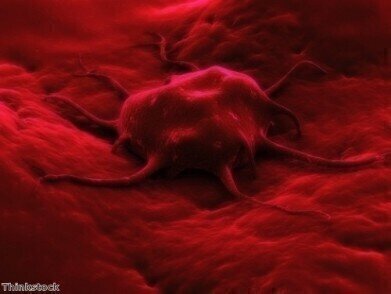News
Biofilm Production Aids Campylobacter Survival
May 25 2010
Scientists at the Institute of Food Research have found a way that the foodborne pathogen Campylobacter can survive in the environment. Campylobacter - the main cause of food poisoning in Europe and America,
most often contracted from eating under-cooked chicken or turkey - is estimated to cause more than 400,000 cases of food poisoning annually in the UK alone, costing the UK economy an estimated £500 million each year.
As Campylobacter cannot survive in the oxygen levels in the air, one survival strategy of bacterium is to form a biofilm, whereby the bacteria stick to a surface and encase themselves in a sticky ’slime’ which protects them. IFR researchers have found that Campylobacter will readily form a biofilm under laboratory conditions, and that, when the bacteria were left in air, they respond to these stressful conditions by more rapidly forming
this biofilm. Campylobacter cells were also shed from the biofilm under environmental conditions, showing that a biofilm is a reservoir of cells that can subsequently enter the food chain, potentially leading to instances of food poisoning.
"Campylobacter can clearly sense their stressful environment and try to protect themselves by making a biofilm. Now we need to focus in on those systems that actual sense the stress, in particular, the oxygen sensors," commented Dr Mark Reuter.
"While biofilms are well established in the lifestyle and success of other pathogenic bacteria, their role in the lifestyle of Campylobacter was still unclear. We now have developed a model where the biofilm plays a central role in the transmission of Campylobacter via the food chain, and this may lead to new antimicrobial approaches, like disrupting the biofilm matrix or prevention of biofilm formation," commented Dr Arnoud van Vliet.
The IFR is an institute of the Biotechnology and Biological Sciences Research Council (BBSRC), and this research, which was funded by the BBSRC, is very timely, as the key UK funders are for the first time developing a joint Campylobacter strategy, a key activity underpinning the Cross Government Research and Innovation Strategy for Food published earlier this year.
Digital Edition
Lab Asia Dec 2025
December 2025
Chromatography Articles- Cutting-edge sample preparation tools help laboratories to stay ahead of the curveMass Spectrometry & Spectroscopy Articles- Unlocking the complexity of metabolomics: Pushi...
View all digital editions
Events
Jan 21 2026 Tokyo, Japan
Jan 28 2026 Tokyo, Japan
Jan 29 2026 New Delhi, India
Feb 07 2026 Boston, MA, USA
Asia Pharma Expo/Asia Lab Expo
Feb 12 2026 Dhaka, Bangladesh



















